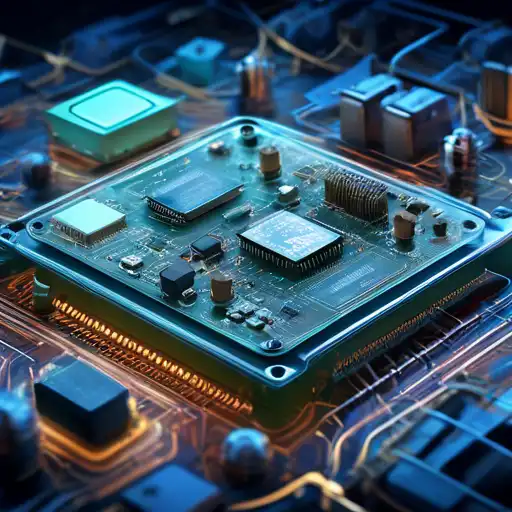The Hidden Heroes: How Embedded Systems Power Our Smart Devices
In the digital age, smart devices have become an integral part of our daily lives. From smartphones to smart refrigerators, these devices make our lives easier, more efficient, and more connected. But have you ever wondered what powers these smart devices? The answer lies in embedded systems, the unsung heroes behind the scenes.
What Are Embedded Systems?
Embedded systems are specialized computing systems that perform dedicated functions within larger mechanical or electrical systems. Unlike general-purpose computers, which are designed to handle a wide range of tasks, embedded systems are optimized for specific tasks, making them more efficient and reliable.
The Role of Embedded Systems in Smart Devices
Embedded systems are the brains behind smart devices. They control everything from the temperature in your smart thermostat to the notifications on your smartwatch. Here are some ways embedded systems power our smart devices:
- Efficiency: Embedded systems are designed to perform specific tasks with minimal power consumption, making them ideal for battery-operated devices.
- Real-time Processing: Many smart devices require real-time processing, and embedded systems are built to handle these demands seamlessly.
- Connectivity: Embedded systems enable smart devices to connect to the internet and other devices, forming the backbone of the Internet of Things (IoT).
Examples of Embedded Systems in Everyday Life
Embedded systems are everywhere. Here are a few examples of how they are used in everyday life:
- Smartphones: From managing battery life to processing touch inputs, embedded systems are at the heart of every smartphone.
- Home Automation: Smart lights, thermostats, and security systems all rely on embedded systems to function.
- Automotive: Modern cars are equipped with numerous embedded systems, from engine control units to infotainment systems.
The Future of Embedded Systems
As technology continues to evolve, the role of embedded systems will only grow. With the rise of IoT and artificial intelligence, embedded systems will become even more sophisticated, enabling smarter and more connected devices. The future holds endless possibilities, from self-driving cars to smart cities, all powered by embedded systems.
Conclusion
Embedded systems are the invisible force behind the smart devices we rely on every day. They are efficient, reliable, and essential to the functioning of modern technology. As we move towards a more connected world, the importance of embedded systems will only continue to grow. So the next time you use your smart device, take a moment to appreciate the embedded system that makes it all possible.
